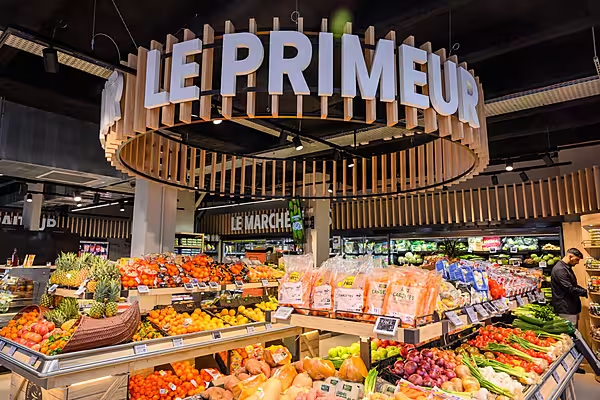Tesco chief executive Ken Murphy has said that the ready meals category has been the only one to see serious disruption as a result of new trading agreements between the UK and EU, following the completion of the Brexit process.
In terms of product availability in its Republic of Ireland stores, which traditionally have sourced much of the Tesco range from the UK, "the product groups that are most affected are ready meals, with a short shelf life," Murphy told a conference call.
"Yes, there are some processed meat issues, but ready meals are the ones that are most heavily impacted, because they typically operate on an eight-day shelf life. If there's a delay at port of over four hours, that's a day's shelf life lost, effectively. That's the one that we most critically want to address."
Murphy was commenting following the publication of Tesco's full-year results, which indicated that the business posted a 8.5% increase in sales across its UK and Republic of Ireland business in the 19 week period including Q3 and Christmas.
He added that there is also a "challenge" when it comes to citrus fruits coming from mainland Europe, but added that "availability in both Northern Ireland and the Republic remains strong, and in mainland UK remains very strong.
"We see this as a challenge to overcome over the next few months, but we don't see it as a crisis."
Northern Ireland
In terms of supplying the group's Northern Ireland stores, Murphy said that Tesco has "re-routed a lot of supply to the North to Stranraer - Larne, to avoid the complexity of having to come in and out of the EU through Dublin port.
"It does make it easier in some respects when it comes to fresh, but most fresh food in the UK and Ireland, both north and south, is supplied locally."
On tariffs, Murphy said that the group is yet to experience a "significant upswing" in tariffs on products being transported between the UK and Europe.
"We don't know how that's going to play out – if we end up with an issue on it, we will develop a supply chain solution for it," he said. "We're not signalling an additional cost, and therefore we're not signalling an increase in price for customers."
Shopping Habits
With many consumers continuing to work from home, Murphy noted that the group's city centre stores have been impacted negatively, as shoppers continue to shop locally.
"The city centre stores have been impacted, there's absolutely no doubt about it," he said. "In some city centres, there's quite a decent residential population, and they see our convenience stores as a lifeline, and continue to shop in them, but there's definitely a drop in trade in relative terms. Whereas, in our neighbourhood stores, we're seeing strong growth.
"As more and more people work from home – and we believe that working from home will be institutionalised in our society, not on a five day week, but certainly on a two to three day week – we believe that this trend will somewhat persist. So we're looking all the time at how we adapt our offer to that."
© 2021 European Supermarket Magazine – your source for the latest retail news. Article by Stephen Wynne-Jones. Click subscribe to sign up to ESM: The European Supermarket Magazine.














